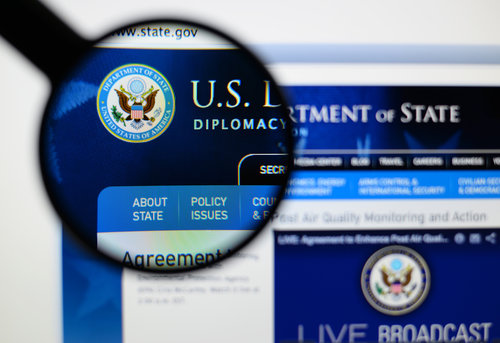The Weakening Of State Human Rights Protections Under Secretary Tillerson
April 12, 2017
Blogs
By Marissa Saretsky
In the two months since Rex Tillerson took office as U.S. Secretary of State, two prominent media reports regarding his new role have been on the topic of human rights. In early March, Tillerson notably skipped the release of the State Department’s annual human rights report. And just the other week, Tillerson decided to lift all human rights conditions on the sale of F-16 fighter jets to Bahrain.
Surrounded by fellow business and human rights experts at a conference when this latest piece of news dropped, and given my support of the premise that strong human rights management is good for business, I was prompted to reflect on the potential implications of the U.S. State Department’s shifting position on human rights. Signs point to business leadership being more important than ever, and here are three reasons why:
First, the private sector is taking on an increasingly prominent role as the current administration affirms its priorities. After all, many members of the current administration, including the president himself, come from business and seek to run the government like one. This is important to keep in mind, because the U.S. government is still expected to uphold the first pillar of the U.N. Guiding Principles for Business and Human Rights (UNGPs). It emphasizes the state responsibility to protect against human rights abuses by business by implementing appropriate policy and legislation. While the intention of this principle is to protect a state’s own citizens, states could nonetheless consider areas of leverage in extraterritorial human rights protection. The UNGPs do not explicitly require this, but the US has long played a leading role in making human rights a central aspect of its diplomacy. Last week’s shift away from this stance may have a weakening effect on human rights standards globally.
Second, we often hear from corporate clients that they are asked by stakeholders to step up and take on aspects of the protect pillar, in the absence of strong rule of law in countries where they operate. Indeed, when government sends a signal to the business community that the respect of human rights is no longer a priority, it leaves two options for businesses: to follow suit and take an easier path, or instead further reinforce efforts to uphold ethical behavior in business transactions. The latter requires solid leadership and a rights-aware company culture that sends a strong message both domestically and internationally to governments and businesses alike. A prime example of this is H&M’s commitment to paying textile workers a living wage by 2018. The company specifically mentioned in its announcement that because governments are taking “too long,” H&M sees an opportunity “to take further action and encourage the whole industry to follow.”
This leads me to my final point. The role and influence of business should not be understated and the time for leadership is now. When states fail to meet UNGP expectations, there is an opportunity for companies to influence and shape the human rights landscape. Being vocal on corporate commitment to respecting human rights, for example via a human rights policy or by using leverage with governments, is a first step, but the proverbial “actions speak louder than words” applies here. Ongoing human rights due diligence processes used to inform business decisions will demonstrate to those watching that business will not backstep on human rights, even if and when states do.
It is hard to fully appreciate the nature of changes that will occur in the human rights landscape over the next decade or so, and we can only speculate as to the severity of those changes. What we do know and what warrants further dialogue is that business has the opportunity to use its influence to send a response signal when states wrongly treat human rights as an obstacle in business dealings, and not part of the solution.
